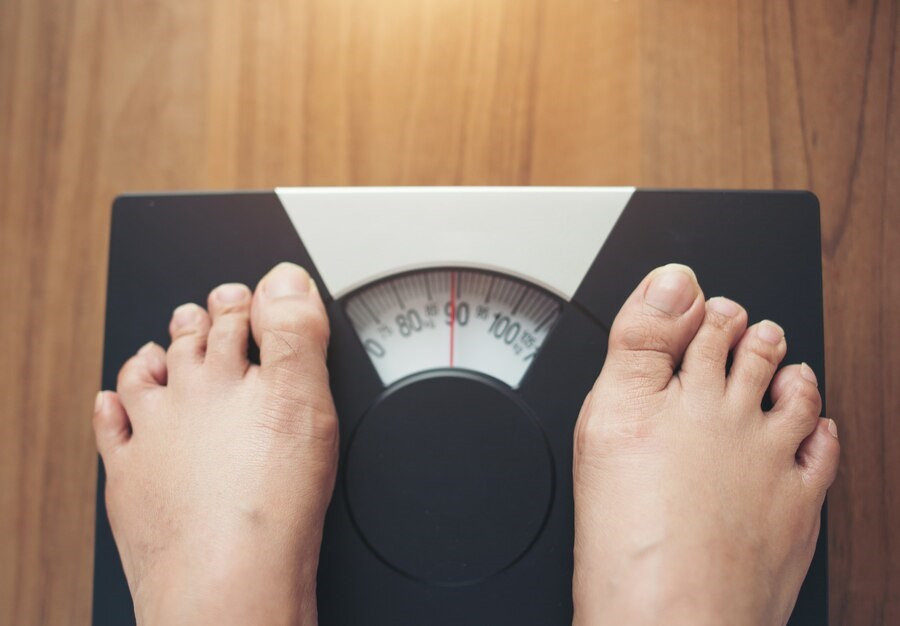Mengonsumsi makanan dan minuman manis memang dapat membuat hati bahagia. Sayangnya, kebiasaan tersebut dapat menyebabkan berat badan bertambah bila dilakukan secara rutin. Banyak orang beralih ke pemanis buatan agar tetap dapat menikmati makanan manis namun tidak mengalami lonjakan gula darah dan bertambah berat badan. Apakah benar cara tersebut efektif?
Apa Itu Pemanis Buatan?
Pemanis buatan adalah zat aditif atau bahan kimia yang ditambahkan ke beberapa makanan dan minuman sebagai pengganti gula agar terasa manis. Beberapa orang menyebutnya sebagai pemanis yang intens karena memberikan rasa mirip dengan gula hingga beberapa ratus kali lebih manis dari gula asli.
Meskipun memberikan rasa manis, dikatakan bahwa pemanis buatan mengandung kalori yang sangat kecil karena tidak dipecah dalam saluran cerna. Sebagian besar pemanis buatan hanya memiliki 3 kalori per sendok teh makan. Oleh karena itu, tidak terjadi penambahan kalori yang signifikan dalam tubuh Anda ketika menggunakan pemanis buatan.
Beberapa jenis pemanis buatan yang banyak beredar di pasaran antara lain:
- Sakarin
- Aspartam
- Sukralosa
- Kalium asesulfam
- Neotam
- Advantam
Masing-masing pemanis buatan memiliki kelebihan dan kekurangan, dan sejumlah penelitian telah dilakukan untuk mengamati keamanan dan efektivitasnya dalam menurunkan berat badan. Meski berhasil bagi beberapa orang, namun para ahli mengingatkan mengenai efek samping konsumsi pemanis buatan dalam jangka panjang.
Baca Juga: Dehidrasi dan Pengaruhnya pada Diabetes
Hubungan Antara Pemanis Buatan dan Penurunan Berat Badan
Beberapa pengguna pemanis buatan melaporkan mengalami penurunan berat badan setelah menggunakan pemanis buatan. Banyak orang menganggap bahwa sedikitnya kandungan kalori dari pemanis buatan bisa membantu mereka dalam menurunkan berat badan.
Hubungan ini menarik perhatian para ahli sehingga dilakukan banyak penelitian mengenai hubungan antara keduanya. Sayangnya hingga saat ini belum ada kesimpulan yang jelas apakah pemanis buatan dapat mengurangi berat badan dan aman untuk digunakan dalam jangka waktu lama.
Beberapa penelitian menunjukkan bahwa pemanis buatan dapat membantu penurunan berat badan. Dalam sebuah meta-analisis dari 20 studi yang diterbitkan dalam Obesity Review pada bulan Juli 2020 menyimpulkan bahwa pemanis buatan yang tidak mengandung kalori dapat menyebabkan penurunan berat badan dan indeks massa tubuh yang signifikan.
Sebuah penelitian meta-analisis lain, beberapa studi kohort yang dianalisis menyebutkan bahwa minuman yang menggunakan pemanis rendah dan tanpa kalori dikaitkan dengan berat badan yang lebih rendah. Dalam studi kohort lain yang juga dianalisis, disebutkan bahwa minuman berpemanis buatan tanpa kalori jika dibandingkan dengan minuman manis, turut dikaitkan dengan berat badan lebih rendah dan penurunan kasus obesitas.
Namun para ahli menekankan bahwa kesimpulan dari penelitian kedua memiliki kepastian yang bersifat “rendah hingga sangat rendah” karena keterbatasan dalam konsistensi dan ketepatan dalam penelitian.
Baca Juga: Bukan Hanya Gula, Pengidap Diabetes Juga Perlu Waspada dalam Mengonsumsi Garam
Sejumlah penelitian juga mengungkapkan hasil sebaliknya. Dalam tinjauan yang diterbitkan pada Januari 2021 di Frontiers in Nutrition mengungkapkan bahwa sebagian besar studi klinis melaporkan tidak ada efek signifikan dari pemanis buatan terhadap berat badan. Ada juga bukti penelitian yang menemukan bahwa konsumsi diet soda dengan pemanis buatan jangka panjang dikaitkan dengan peningkatan lemak tubuh pada orang dewasa dan indeks massa tubuh yang lebih tinggi pada anak-anak.
Begitu juga tinjauan sistematis yang diterbitkan di BMJ pada tahun 2019 tidak menemukan bukti efek apa pun dari pemanis buatan pada orang dewasa atau anak yang kelebihan berat badan atau obesitas yang mencoba menurunkan berat badan.
Menurut WHO, untuk saat ini WHO melarang penggunaan pemanis buatan nongula untuk menurunkan badan. Berdasarkan penelitian yang dilakukan pada tahun 2022, pemanis buatan tersebut tidak memberikan manfaat jangka panjang untuk mengurangi lemak tubuh pada orang dewasa atau anak-anak. Untuk itu, sebelum memutuskan untuk menggunakan pemanis buatan sebaiknya konsultasikan terlebih dahulu ke dokter.
Cara Aman Menurunkan Berat Badan
Bagi Anda yang memiliki masalah berat badan akibat gaya hidup, cara terbaik untuk menurunkan berat badan adalah dengan mengubah gaya hidup menjadi lebih sehat. Beberapa cara yang bisa Anda lakukan antara lain:
- Tetapkan tujuan yang realistis
- Mengurangi konsumsi gula
- Memperbanyak makanan berserat dan minum air putih
- Secara perlahan kurangi porsi makanan
- Hanya memakan camilan bila Anda benar-benar merasa lapar
- Berolahraga secara aktif
Pemanis buatan digunakan untuk meniru rasa manis gula namun rendah kalori. Meskipun demikian, konsumsi pemanis buatan tidak dianjurkan bagi Anda yang ingin menurunkan berat badan. Apabila Anda memiliki masalah berat badan sebaiknya konsultasikan ke dokter. Anda juga bisa menggunakan layanan konsultasi pada aplikasi Ai Care.
Mau tahu tips dan trik kesehatan, pertolongan pertama, dan home remedies lainnya? Cek di sini, ya!
- dr Hanifa Rahma
Foley, J. (2023). What Are Artificial Sweeteners, and Are They Bad For Me? 6 Possible Risks to Consider. Available from: https://www.goodrx.com/well-being/diet-nutrition/artificial-sweeteners
Cleveland Clinic. This Is Why Artificial Sweeteners Are Bad for You. Available from: https://health.clevelandclinic.org/whats-worse-sugar-or-artificial-sweetener/
NHS. How to Lose Weight Safely. Available from: https://www.nhsinform.scot/healthy-living/food-and-nutrition/healthy-eating-and-weight-loss/how-to-lose-weight-safely
Garone, S. (2023). Can Artificial Sweeteners Help With Weight Loss?. Available from: https://www.everydayhealth.com/diet-nutrition/can-artificial-sweeteners-help-with-weight-loss/
Mayo Clinic. Artificial sweeteners and other sugar substitutes. Available from: https://www.mayoclinic.org/healthy-lifestyle/nutrition-and-healthy-eating/in-depth/artificial-sweeteners/art-20046936#
NHS. The truth about sweeteners. Available from: https://www.nhs.uk/live-well/eat-well/food-types/are-sweeteners-safe/












